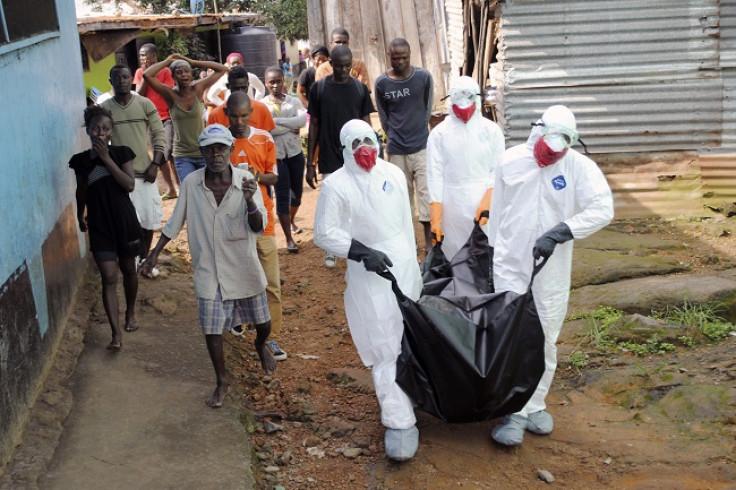Ebola: Another Victim 'Rises From Dead' as Hospitals Face Space Crisis in Liberia

Another Ebola victim in Liberia has come back from the dead, according to latest reports.
The viral clip from ABC's Good Morning America, shows a corpse moving just as men, wearing protective clothing, wrap his body in plastic in preparation for the crematorium.
The crowd in Monrovia cheered and shouted: "He's alive," reported Dr Richard Besser, ABC's chief health and medical editor.
The man was taken away by ambulance to hospital but it is not known where as the country's hospitals face a huge space crisis as they deal with the growing number of Ebola victims.
"If you die from Ebola, they are very quick for you. If you're living and you need help, there's really nowhere to go," said Besser.
Passers-by tried to help the victim by contacting the local hospitals twice.
"We couldn't get him help when he was alive. They only come when you die," a community leader told ABC News.
Last month, two women in their sixties and forties, identified as Dorris Quoi and Ma Kebeh, came back to life in the county of Nimba when they were about to be buried.
Their resurrections sparked hysteria in the communities with people not wanting the women to live among them anymore.
David Quammen, author of Ebola: The Natural And Human History, warned if the deadly virus is not stopped, future generations in Liberia will be wiped out.
"People are dying more of malaria and pneumonia and childhood diarrheal diseases because the health care system has been overwhelmed with Ebola. And there's a real possibility that if it's not stopped, it'll destroy Liberia for generations to come," he told the National Geographic.
The 2014 Ebola epidemic is the largest in history and the first time it has affected West Africa. There have been 3,431 deaths out of 7,470 cases in Guinea, Liberia and Sierra Leone.
On September 30, the first case of Ebola was diagnosed in the United States after a person travelled to Dallas, Texas from West Africa.
In a statement on the Centers for Disease Control and Prevention, it read: "CDC recognises that even a single case of Ebola diagnosed in the United States raises concerns. Knowing the possibility exists, medical and public health professionals across the country have been preparing to respond."
Meanwhile, fears have been heightened in the UK after scientists from the University of Lancaster predicted a 50% chance the deadly virus will be brought into the country by 24 October.
Derek Gatherer said the arrival of the disease was "a lottery".
He said: "If this thing continues to rage on in West Africa and indeed gets worse, as some people have predicted, then it's only a matter of time before one of these cases ends up on a plane to Europe."
© Copyright IBTimes 2024. All rights reserved.







